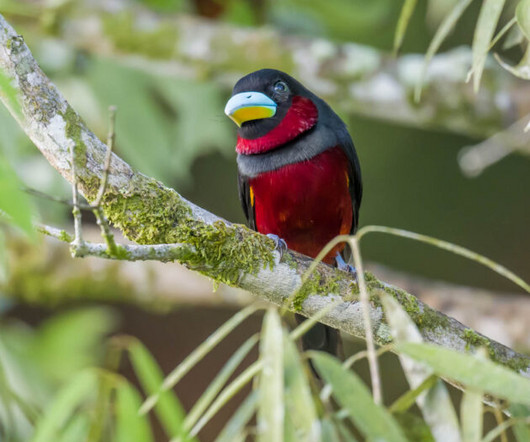Birding Sepilok, Borneo (Part 2)
10,000 Birds
NOVEMBER 13, 2023
It feels good to start a post with some truly attractive birds – such as two species of broadbills. Strangely, there do not seem to be many papers on this species. In one paper , you can find fascinating sentences such as “The new species is most similar to D.












Let's personalize your content